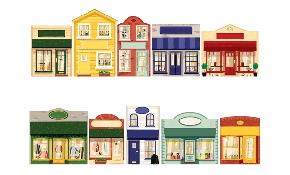With millions of people lacking access to affordable and safe homes, the United States housing market is in crisis. Currently, there are 13 severely unaffordable major housing markets in the U.S. and only 10 affordable markets, according to the 14th Annual Demographia International Housing Affordability Survey: 2018. Housing unaffordability in some major markets, including San Jose, Denver, and Portland even exceeds the previously unprecedented level of unaffordability during the housing bubble that precipitated the Great Recession. For many macro- and microeconomic reasons, housing affordability has been and likely will continue to a major issue for many Americans.
Housing costs and the net cost of purchasing a home [upfront costs – or the cost associated with the initial cash outlay to secure a home], which are typically a consumer’s largest monthly and yearly expense when broken out into a long-term mortgage, are largely driven by the costs and time associated with traditional construction; a seemingly obvious “functional input” but one which is often disregarded as a “headline” item when discussing the subject of housing affordability. Often, the housing affordability narrative is entirely focused on market and auction-based dynamics, or, put another way, on the localized “market” pricing of housing. The actual “cost of goods” – or the literal bottom line costs of constructing a home – are frequently completely disregarded by those tasked with addressing this consistent issue. SG Blocks, a firm in which I am CEO, is attempting to directly attack and solve this “bottom line,” “cost of goods” function.
In 2008, I co-founded SG Blocks, a leading innovator, designer and fabricator of container-based structures. While we partner with industrial and commercial entities and while we have a meaningful enterprise footprint across our customer count, we are also a solution for making housing affordable and sustainable on an immediate, midterm and long-term basis. We recently launched a new subsidiary, SG Residential, which focuses on the sales and financing of single-family container-based modular homes.
Developers, architects, builders and owners can utilize modular, container-based construction as a greener solution with faster execution, and complete stronger buildings of higher value. Today, code-engineered cargo shipping containers can be used to construct and provide safe, durable and environmentally-friendly residential, retail and commercial structures.
Container-based buildings are constructed more quickly and efficiently – in approximately half of the amount of time of traditional construction projects – awarding clients with substantial savings in both time and money on projects. Again, this functional input to the total cost of home ownership is absolutely paramount in optimizing if we are ever to make meaningful progress into achieving home affordability on a national scale.
By utilizing a “first principles” approach to optimizing the housing and construction cost function – effectively by trying to reset the fundamental concepts or assumptions on which the housing and building construction complex is based – we have been able to achieve unprecedented utility in driving down cost and maximizing building cost efficacy. At SG Blocks, we are dedicated to disrupting the construction and housing industries and we anchored in our dedication to this by our desire to see housing affordability on a national scale. Through container-based construction, we give families a safe haven that is more affordable and durable than any other alternative in the current market and we hope to continue to drive costs lower in time.
Paul Galvin is chairman and CEO of SG Blocks. The views expressed here are the author’s own and not that of ALM’s real estate media group.

















 Copyright © 2024 ALM Global, LLC. All Rights Reserved.
Copyright © 2024 ALM Global, LLC. All Rights Reserved.